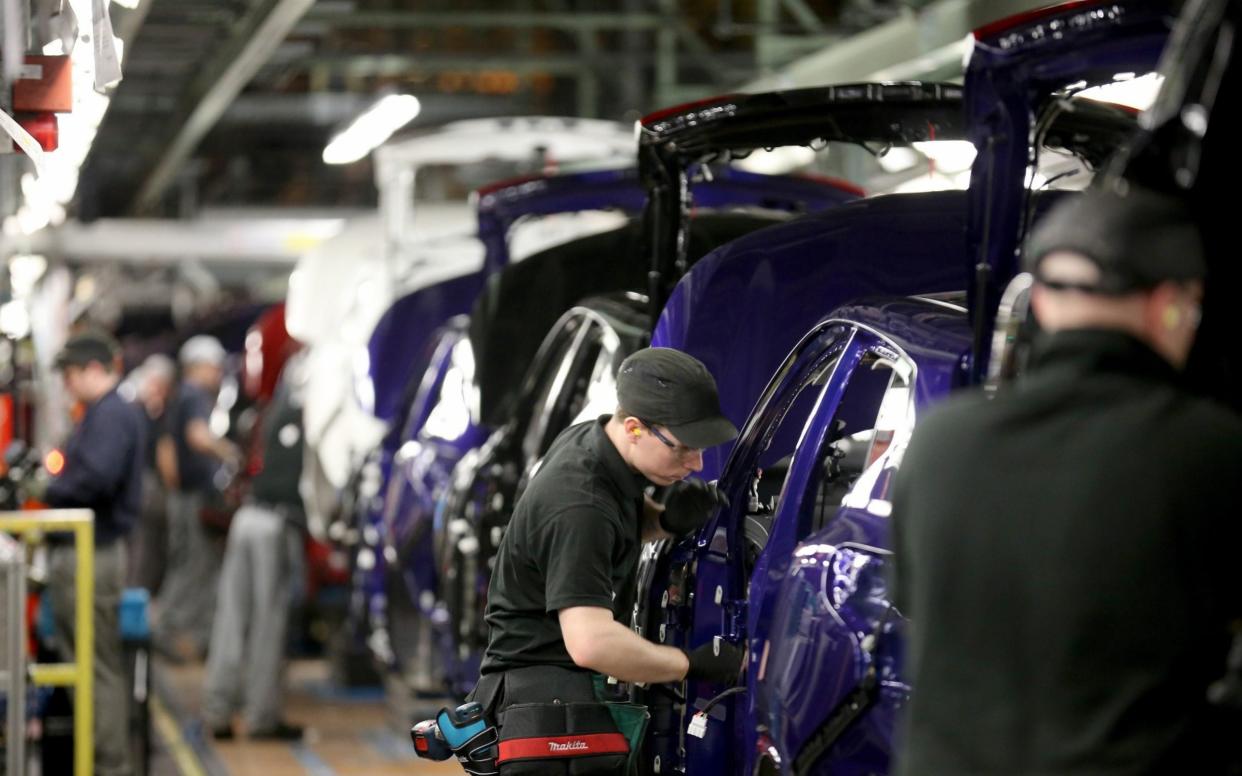Nissan and Toyota want Britain to pay for no deal Brexit tariffs

Nissan and Toyota has demanded a British government bailout to cover the tariffs Japan’s two largest carmakers will face if there is a no trade deal Brexit.
The two companies want the government to cover the expected 10 percent taxes that would hit UK automotive exports from January 1 if Britain leaves the transition period without an agreement.
UK and EU negotiators are racing to finalise a zero-tariff free trade agreement by the October 15 European Council summit in Brussels.
The two sides remain divided over major issues such as fishing, enforcement and dispute resolution and the level playing field guarantees, especially for subsidy law.
Boris Johnson held Brexit talks with Ursula von der Leyen, the president of the European Commission, on Saturday and they agreed to intensify negotiations. The Prime Minister said on Sunday his preference was for an agreement but that Britain could live with no deal.
Nissan warned in June that its factory in Sunderland, which employs 7,000 people, would be “unsustainable” if there was no deal.
It pushed ahead with £52 million plans to build its new Qashqai sports utility vehicle after securing reassurances from the government that Brexit would not hurt its competitiveness.
Toyota operates a plant in Derbyshire, central England, and produced roughly 8 percent of the 1.52 million cars made in Britain in 2018. It also produces engines at a factory in Wales.
"We urge UK and EU negotiators to work collaboratively towards an orderly, balanced Brexit that will continue to encourage mutually beneficial trade," Nissan said.
Neither car company commented on the demand for compensation, which was reported in the Nikkei financial daily.
According to the Society of Motor Manufacturers and Traders, 80 percent of cars built in the UK are exported, with 55 percent of those going to the EU. Nissan and Toyota produced just under half a million vehicles in the UK last year with almost 220,000 going to the EU.
The Society of Motor Manufacturers and Traders said last year that no deal tariffs could add £3.2bn a year to costs for the car industry in Britain.
A Downing Street spokesman said, “We’ve been working with a wide range of sectors across the economy, including the automobile sector, to ensure they are prepared for the end of the transition period.”
The government only wants the outline of the deal by October 15 and talks on the small print could run beyond that deadline.
The EU’s deadline to finalise the deal is the end of October, although sources in Brussels believe that could stretch to mid-November.
Angela Merkel met with Michel Barnier, the EU’s chief negotiator, in Berlin on Monday. The German Chancellor said she was “optimistic” as long as negotiations continued.
Heiko Maas, the German foreign minister, said it would be “totally irresponsible” to force a no deal during the coronavirus pandemic.
Mr Barnier plans to contact EU fishing ministers ahead of trade talks in London this week in a bid to secure support for any future compromises. France and Denmark are the most difficult countries to convince.
In London, Penny Mordaunt, the paymaster general, told MPs that peers must not block the Internal Market Bill because it would protect UK interests if there was no deal.


